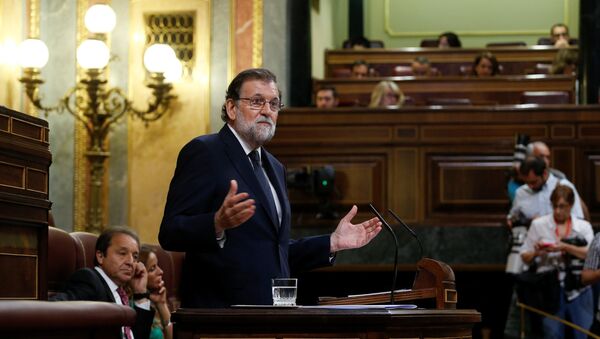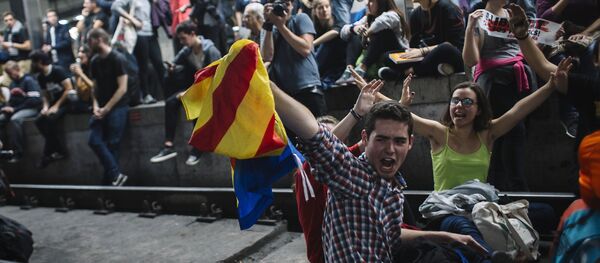MADRID (Sputnik) — On December 13, Spanish Prime Minister Mariano Rajoy expressed hope for a dialogue restoration between with the new Catalan government, which is due to be formed following regional elections on December 21, and the incumbent Spanish authorities.
"Some leaders decided that the [Spanish] Constitution did not pertain to their community, invented a new legislation, did not let the opposition speak and violated the decision of the court," Rajoy pointed out.
🎥Catalan Agriculture minister asks whether Spain will end its “repression” in Catalonia after the elections ➡️https://t.co/ucV5GvjeGm. pic.twitter.com/Yr8WYM1Ofb
— Catalan News (@catalannews) 13 декабря 2017 г.
READ MORE: Brussels Court to Decide on Ex-Catalan Leader Puigdemont Extradition to Spain
Catalonia held its independence referendum on October 1, during which the majority of Catalans backed the community's secession from Spain. The independence declaration and the likely secession from Spain led to the dissolution of the regional parliament by the central authorities. Besides, Prime Minister Mariano Rajoy dismissed the Catalan President Carles Puigdemont, who has refused to recognize the dismissal of the government and called for "democratic resistance" after Madrid invoked Article 155 imposing direct rule over the region. In turn, Puigdemont left the country for Belgium in late October.
In early November, the Spanish authorities issued an arrest warrant for the Catalan politician and several of his supporters. On November 17, Brussels prosecutor's office demanded that Puigdemont and the ministers be extradited to Spain. On December 7, some Catalans 45,000 took to the streets of Brussels while calling the EU to intervene for protecting basic human rights.



